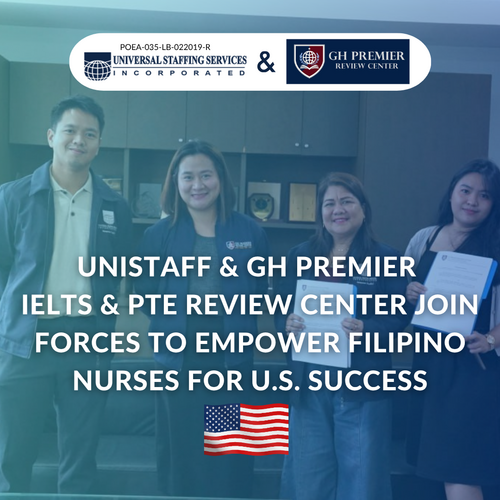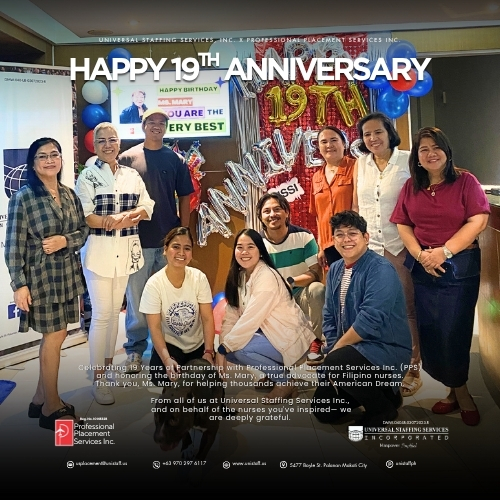4 Important Guides to the POEA
Looking for a job overseas? Here's everything an aspiring OFW needs to know about POEA and its services.

Before jumping directly into your job applications, take some time to first make sure you know exactly what a safe and secure recruitment process looks like.
Job hunting can be exhausting and it can be a big pain! Widening your search to global opportunities would need greater understanding of so much more information about overseas employment. Get ready to invest time not only in educating yourself, but also in exercising a lot of patience.
Assuming you’ve already found the job opportunity you’re targeting, the next step should be looking into recruitment agencies who have employers who will fill those specific job openings you’re going after. Let’s say you’re already planning to apply to a specific recruitment agency. Before engaging with the recruitment agency, the first step you need to take is to do your research. This will help you discover if the agency complies with government regulations.
That’s where the Philippine Overseas Employment Administration or “POEA” comes in. This is the government body in charge of overseeing private recruitment companies.
Note: If you act on wrong information or make one bad decision, it could wipe out your entire savings. This is why the POEA’s responsibility is crucial in keeping your overseas application secure.
1. What is the POEA?

The Philippine Overseas Employment Administration or POEA is a government agency responsible for monitoring and regulating private recruitment agencies in the Philippines. Their duty is to assure all job opportunities overseas that are made available to all Filipinos are legitimate. They seek to protect all applicants and Overseas Filipino Workers or OFWs from illegal recruiters or employers.
The POEA is in charge of creating and implementing policies to protect the interests of OFWs. They have OFW representatives that help to ensure this. The law mandates the POEA Board to have representation in its members from the sea-based and land-based sectors. These representatives are also migrant workers nominated within their own sectors.
2. What are the responsibilities of POEA over private recruitment agencies?
(1).png)
This means that private recruitment agencies for land-based workers and manning agencies for seafarers are required to have a license to recruit and place workers issued by the POEA. These agencies are allowed to recruit workers within their offices only. And if they intend to conduct recruitment activities outside of their offices, they will need a Special Recruitment Authority (SRA) issued by the POEA.
.png)
If you see a job posting without this one, you should report to POEA immediately.
You can check this link to see where all registered recruitment agencies are in POEA's webpage.
All recruitment agencies, regardless of the industry in which they specialise, are required to submit the names of their staff along with their tasks. It is important for you to check whether a person has the authority to recruit or not before dealing with them.
Once you’ve established the credibility of an agency and their staff, you’ll feel more assured and become more confident that they can help facilitate your application. As more and more people work abroad with the help of agencies, their role extends beyond just enabling people secure jobs. An agency can support workers in case something happens while they’re working abroad. In the event of any contract violations, workers can file complaints against their agencies and foreign principals.
3. How do you determine if a job opening is legitimate or not?
The POEA reviews and approves overseas job listings. All job orders or requests for workers must pass through the POEA. The Philippine Embassy or the Philippine Overseas Labor Office (POLO) located in various parts of the world confirms these job orders. If a job order is valid, that means that a foreign employer is indeed looking for workers. And agencies can only accept applicants for these valid job orders.

Remember to always be careful! Check for jobs based on the latest job order. If a job order has been posted for a while, that job might not be available anymore. The POEA website provides a list of job orders with approved dates. It also indicates the remaining number of available workers needed to fill a job order.
Again, be very careful of agencies that “reprocess” job orders for overseas employers. “Repro” job orders are non-existent work. These jobs may be completely different from what was offered and discussed during the application process. It could be an unrelated job and with a different employer.

What happens if you’ve found a job abroad that’s not included in the list of jobs at the POEA, or without the help of an agency? Always double check and make sure that this is not a job scam. Based on the job, the POLO or the Embassy may help to verify the job’s contract. And the POEA can also check the contract along with other requirements.
4. What are my rights and how do I protect them?

Republic Act No. 10022 requires the POEA to only deploy workers in countries that uphold the rights and guarantee protection of OFWs. The Department of Foreign Affairs (DFA) issues a certification to the POEA specifying the receiving countries’ laws or conventions which protects the OFW’s rights.
As the opportunities to work abroad are growing, so are the concerns on illegal recruitment. Without being careful, you or your friend can easily become a victim. The POEA works with local government units to prevent illegal recruitment. They conduct seminars via the Pre-Employment Orientation Seminar or PEOS to warn against these illegal activities, help victims file cases, prosecute illegal recruiters and close agencies that fail to comply with rules and standards.
If you have any questions about job orders, illegal recruitment and agency verification, processing fees and other things about overseas employment, please call the POEA hotline numbers (632) 722 1144 and 722 1155.
.png)
We hope that you’ve found this helpful. By learning about these 4 elements, you’ll become more informed about safe and secure overseas recruitment processes. Armed with this knowledge, you’ll feel more confident to work with reliable and accredited overseas recruitment agencies. Remember to stay vigilant, verify your information and its sources before going to the next step.
This might feel a bit like information overload. But don’t worry. If you’re wondering, “how am I supposed to remember all this?” you can subscribe to and get updated with our latest news. We’ll provide you with the latest and most essential information about vacancies in your current industry, recruitment processes, and your potential international employers.
Want to receive informative newsletters just like this one? Subscribe now!
Think you’re ready to apply to work abroad?
Take a look at our International Job Openings! Click “Apply Now” so that our recruitment team can review your CV immediately.
.png)

.png)





